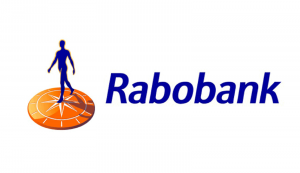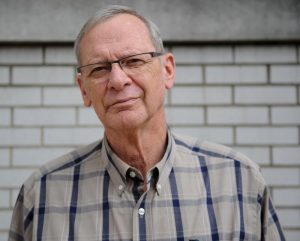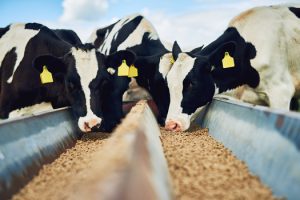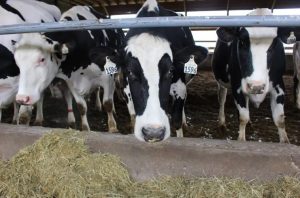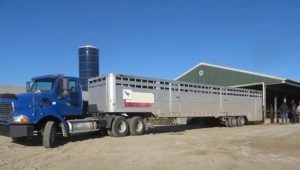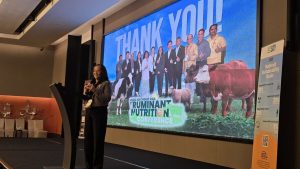
They’re able to do that with the help of an anaerobic digester.
Nick Elger with the U.S. Environmental Protection Agency says they estimate there are approximately 315 anaerobic digester systems being used on farms across the country. In 1994, he says only a handful of farms were using digesters.
“Anaerobic digestion is a process through which bacteria break down organic matter, such as manure or food waste or wastewater biosolids in the absence of oxygen,” Elger said.
Homestead Dairy installed a digester in 2013.
“This is the access pit where the manure and all the byproducts get put into before they go to the domes over here,” Houin said.
What’s left is called digestate. Elger says it’s rich in nutrients so farmers can use it as fertilizer in the fields, or in bedding for the cows. He says anaerobic digestion is good for the environment in multiple ways.
“Digestive systems can help reduce greenhouse gas emissions by capturing methane that would have otherwise been lost to the atmosphere, and they can also help displace fossil fuels,” Elger said.
As cow manure decomposes, it releases methane gas. The EPA says it’s 25 times more potent than carbon dioxide at trapping heat in the atmosphere. In the digester, that methane is trapped and, instead, used for energy.
“And doing that, knowing that that’s what’s better for the environment, we create enough electricity for a thousand houses an hour in our town of Plymouth and then even more to run it itself,” Houin said. “So the digester is run by its own electricity. And that’s just amazing.”
With growing awareness of its benefits to the environment, the farm and the community, more farms are taking on the practice of anaerobic digestion.
“The interest is growing because we’re always trying to find better ways for future generations and green energy is amazing to be looking at,” Houin said.
Elger says there’s potential for 8,000 anaerobic digestion systems to be created on farms across the U.S. It’s an investment, but one that the Houin family thought was worth it.
“It’s about being sustainable,” Houin said. “It’s about making sure that we all make efforts and everyone can make a small effort to be more sustainable for future generations.”




